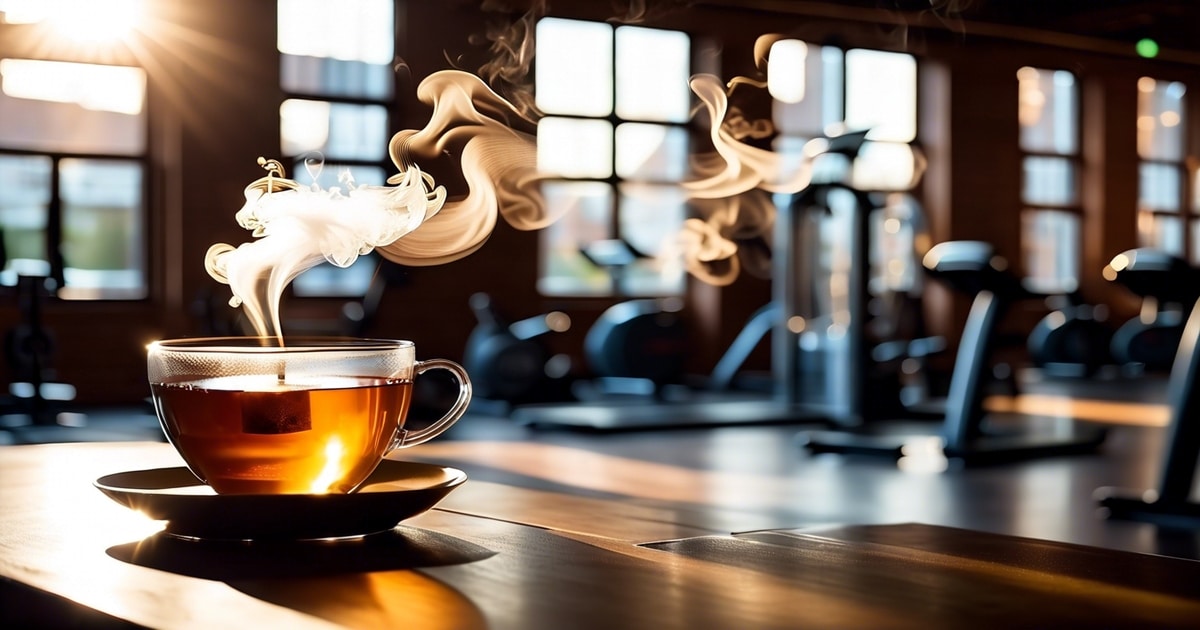Key Takeaways
- Incorporate L-Theanine and certain supplements: Athletes can benefit from incorporating it into their regimen to enhance exercise performance, reduce stress, and improve mental focus during competitive sports.
- L-Theanine is a natural alternative to traditional pre-workout supplements and supplementing exercise tests, offering similar benefits without the potential side effects.
- Understanding the appropriate dosage and timing of L-theanine intake and creatine supplementation can maximize its effectiveness in improving athletic performance and recovery.
- Combining L-theanine with certain supplements can lead to synergistic effects, enhancing its impact on exercise performance and overall well-being.
- Safety Considerations: Athletes should be mindful of safety considerations and potential side effects when supplementing L-Theanine into their regimen, ensuring it aligns with their needs and health status.
- By integrating L-Theanine supplementation into their regimen, athletes can take a holistic approach to optimizing exercise performance, recovery, and mental well-being.
- Let’s dive into L-theanine for athletes!
Understanding L-Theanine and Its Properties
Definition and Natural Sources
L-theanine is an amino acid found in tea leaves, especially green tea. It’s also available as a dietary supplement. This compound is known for its ability to promote relaxation without causing drowsiness. Athletes and sprinters can benefit from l-theanine supplementation due to its calming effects, which can help reduce stress and anxiety before competitions or intense training sessions. It has been shown to improve focus and concentration, making it easier for athletes to maintain mental clarity during high-pressure situations.How L-Theanine Works in the Body
When consumed, l-theanine crosses the blood-brain barrier and affects neurotransmitters in the brain. The article increases levels of GABA, dopamine, and serotonin – all of which contribute to feelings of relaxation and well-being. As a result, athletes may experience reduced jitters and improved mood without feeling sedated. Moreover, l-theanine works synergistically with caffeine – another common ingredient in many pre-workout supplements. While caffeine provides an energy boost, l-theanine helps smooth out the jittery side effects that some individuals experience when consuming caffeine alone. Combining these two compounds creates a relaxed alertness that can be particularly beneficial for athletes looking to enhance their performance without experiencing negative side effects commonly associated with stimulants alone.The Role of L-Theanine in Exercise Performance
Support for Endurance
L-theanine may support physical endurance and stamina in athletes. Studies have shown that it can help improve exercise performance by reducing the perception of effort during endurance exercises. This means that athletes may feel less fatigued and be able to sustain their physical efforts for longer periods. Research has indicated that l-theanine can improve physical performance and endurance during exercise, allowing athletes to push themselves further without feeling exhausted. For example, a study published in the Journal of Caffeine Research found that participants who consumed a combination of l-theanine and caffeine experienced enhanced aerobic performance compared to those who only took caffeine.Impact on Energy Levels
The impact of l-theanine on energy levels during workouts and physical performance is noteworthy. Promoting relaxation without drowsiness can help maintain optimal energy levels while reducing stress and anxiety associated with intense physical activity. /// This dual effect allows athletes to stay focused and energized throughout their training or competition. Athletes engaging in high-intensity workouts or competitions often experience heightened stress levels, negatively affecting their performance. However, incorporating l-theanine into their routine may mitigate these effects by fostering a state of calm alertness, ultimately supporting sustained energy levels during demanding physical activities.Stress Reduction and Mental Focus for Competitive Sports
Stress Reduction
Athletes get stressed and anxious, which can mess up their performance. But l-theanine can help reduce stress and make athletes feel more relaxed without making them sleepy. It’s a good supplement for athletes who want to handle their nerves before a competition. L-Theanine works by increasing the production of alpha waves in the brain, inducing relaxation and tranquility. By consuming l-theanine supplements before competitions or intense testing, athletes may experience reduced anxiety levels and improved mental states, allowing them to perform at their best.Cognitive Function and Focus
In addition to stress reduction, l-theanine also plays a crucial role in enhancing cognitive function and focus among athletes. It promotes alertness and helps individuals stay focused during mentally demanding tasks such as strategic planning during sports competitions or maintaining concentration throughout endurance training. Athletes who incorporate l-theanine into their routines may notice improved working memory, attention span, and overall cognitive performance. This benefits their performance during competition and aids in effective training sessions where mental clarity is essential for skill development. Real-life examples have demonstrated how l-theanine supplementation has positively impacted athletes’ performance and ability to maintain composure under pressure while remaining mentally sharp throughout physically demanding activities such as resistance exercise or high-intensity interval training.L-Theanine as a Natural Alternative to Pre-Workout Supplements
Comparing L-Theanine to Traditional Pre-Workout Supplements
L-theanine, a natural amino acid in tea, gives better energy for workouts than typical supplements. It’s not like the ones with caffeine and artificial stuff that can make you feel shaky or tired later. Athletes might like it because it helps without the bad effects of regular pre-workouts. Athletes can benefit from incorporating l-theanine into their routine because it promotes relaxation and reduces stress without causing drowsiness. By contrast, some pre-workout supplements may lead to increased anxiety and restlessness. L-theanine’s capacity to improve mental focus complements athletic training by helping athletes maintain concentration during workouts or competitions.The Potential Advantages of Using L-Theanine as a Natural Alternative
Theanine is natural and good for athletes. It helps the brain and is better than other man-made stuff in pre-workouts. Another potential benefit is the synergy between l-theanine and other natural substances, such as bacopa monnieri (an herb known for cognitive enhancement) when combined in a supplement stack tailored specifically for athletic performance optimization. This combination presents an opportunity for athletes to look beyond conventional pre-workout formulas toward more holistic solutions that address both the physical and mental aspects of training.Enhancing Recovery and Reducing Muscle Soreness with L-Theanine

Post-Exercise Recovery
After intense physical activity, recovery is crucial for athletes. This is where l-theanine comes in. It plays a significant role in post-exercise recovery by aiding the body’s natural healing processes. When an athlete consumes l-theanine, it helps to soothe the body after a demanding workout. L-Theanine has been shown to reduce the time needed for muscles to recuperate after exercise. Athletes who incorporate l-theanine into their routine often experience shorter day recovery, allowing them to return to training feeling refreshed and ready sooner than usual.Reducing Inflammation and Soreness
In addition to promoting faster recovery, l-theanine reduces inflammation and muscle soreness. By decreasing these discomforts, athletes can maintain consistent training schedules without being hindered by lingering pain or stiffness. Athletes have reported that when they take l-theanine supplements, they notice a significant decrease in muscle soreness following strenuous workouts compared to when they do not use it regularly. This reduced soreness allows them to perform better during subsequent training sessions and competitions.Dosage and Timing for Optimal Athletic Performance
Recommended Dosage
Athletes using l-theanine should consider a 200-400mg dosage daily. It’s essential to start with the lower end of this range and gradually increase to assess individual tolerance. The higher end of the dosage range may be more beneficial for those engaging in intense physical activities such as sprinting or high-intensity exercises. Athletes can combine l-theanine with creatine for improved results when considering creatine supplementation. The combination can enhance muscle glycogen repletion post-exercise, leading to better recovery and subsequent performance.Timing Strategies
Incorporating l-theanine into an athlete’s routine depends on the type of exercise and its intensity. For example, consuming l-theanine 30-60 minutes before a cycling trial could improve performance by reducing heart rate during moderate-intensity efforts without affecting power output. For athletes participating in high-intensity interval training (HIIT), taking l-theanine before each session might enhance accuracy during repeated sprinting efforts, improving average hit time without affecting overall sprint performance.Factors to Consider
Factors like an athlete’s body weight, diet, exercise duration, and muscle mass are crucial when determining the ideal dosage and timing for maximum effectiveness. Athletes need to consider personal responses to different doses over varying durations while monitoring any changes in their athletic performance.Combining L-Theanine with Other Nutrients for Synergistic Effects
Identifying Nutrients
Identifying certain supplements that synergize well is crucial. For athletes, combining l-theanine with specific nutrients can lead to enhanced performance. One nutrient that pairs well with l-theanine is caffeine. This combination has been shown to improve attention and focus during exercise without the jittery side effects often associated with caffeine alone. Another beneficial combination involves pairing l-theanine with nitrates. Nitrates are known for increasing nitric oxide production in the body, which can enhance blood flow and oxygen delivery to muscles during exercise. When combined with l-theanine, this can improve endurance and overall athletic performance.Examples of Effective Combinations
One example of an effective nutrient combination for athletes is supplementing with glucosamine alongside l-theanine. Glucosamine supports joint health, essential for athletes who engage in high-impact activities or weight-bearing exercises. Combining l-theanine with compounds that support the immune system, such as interferon-gamma, can benefit athletes looking to maintain overall health while training intensely.Safety Considerations and Potential Side Effects for Athletes
Common Side Effects
L-theanine is generally well-tolerated by athletes, with very few reported side effects. Some athletes may experience mild symptoms such as headaches, dizziness, or gastrointestinal discomfort. However, these occurrences are rare and typically only happen when consumed in extremely high doses. For example:- A study involving endurance athletes found that those who took l-theanine experienced no significant adverse effects compared to the placebo group. This suggests that l-theanine is safe for use among endurance athletes.
Safety Precautions
When using l-theanine, athletes need to adhere to recommended dosages. Excessive intake can lead to adverse reactions despite its overall safety profile. Athletes must consult a healthcare professional before incorporating l-theanine into their regimen, especially if they have pre-existing medical conditions or are taking other medications/supplements. Some important considerations include:- Checking for potential interactions with other supplements or medications.
- Monitoring any changes in blood pressure levels during supplementation.
Potential Interactions
While there isn’t extensive research on the interactions between l-theanine and other substances commonly used by athletes, caution should still be exercised. For instance, combining l-theanine with stimulants like caffeine might enhance its calming effects while reducing the jitteriness often associated with caffeine alone.Integrating L-Theanine into an Athlete’s Regimen

Diverse Benefits
L-theanine, a compound found in tea leaves, offers a myriad of advantages to athletes. It promotes relaxation without drowsiness, reduces stress and anxiety, and enhances focus and cognitive function. Moreover, it complements the stimulating effects of caffeine without causing jitters or crashes. Athletes who integrate l-theanine into their regimen often experience improved sleep quality, which is crucial for recovery and muscle repair. By reducing the negative effects of caffeine intake, such as increased heart rate and blood pressure, l-theanine contributes to a balanced state during intense workouts.Personalized Approaches
When considering the integration of l-theanine into their routine, athletes should note that personalized approaches yield the best results. Experimenting with different dosages and timing can help individuals determine the most effective way to incorporate l-theanine alongside their protein intake and other supplements. Athletes need to understand that each person may respond differently to l-theanine. Some may find that consuming it before a workout enhances their performance, while others may benefit more from taking it post-exercise to aid relaxation and recovery.Impact on Athletic Performance
The potential impact of l-theanine on overall athletic performance cannot be overstated. Athletes can optimize their training sessions and competitions by promoting a relaxed yet focused state. This compound’s ability to enhance mental clarity and concentration gives athletes a competitive edge, allowing them to perform at their peak while maintaining composure under pressure. In conclusion, integrating l-theanine into an athlete’s regimen offers many benefits that improve performance, recovery, and overall well-being.Frequently Asked Questions
Is L-Theanine safe for athletes to use?
L-Theanine is generally considered safe for athletes when taken in appropriate doses. However, it’s important to consult with a healthcare professional before adding any new supplement to your regimen, especially if you have existing medical conditions or are taking medications.What are the recommended dosage guidelines for L-Theanine for athletes and what are the potential risks associated with it?
L-Theanine is generally safe for athletes when taken in recommended guidelines for ltheanine usage, usually 200-400mg per day. However, high doses may lead to side effects like headache, dizziness, and low blood pressure. It’s important for athletes to consult a healthcare professional before using L-Theanine as a supplement.

